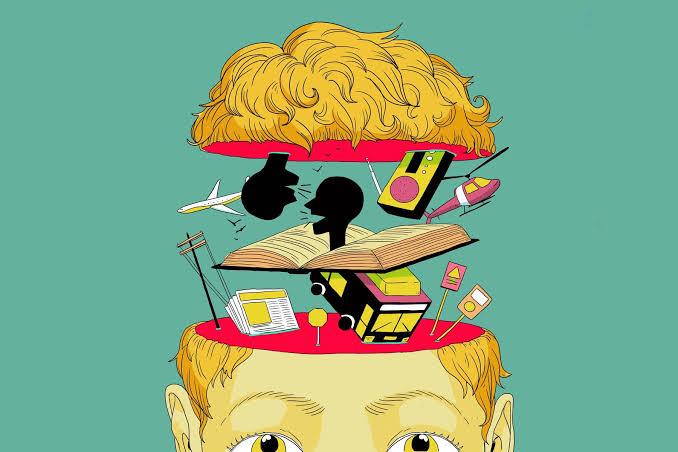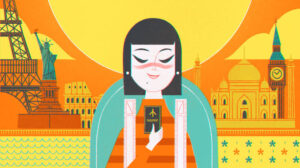
My relationship with language has always been tempestuous.
When I was five, my great-grandmother narrated folktales in our native language of Mewari. I wasn’t fluent in the language, and I barely understood it. But I never interrupted her storytelling, enraptured by her quaint stories about the rat that went to a barbershop.
When she passed away, the last thread that connected me to my native tongue broke, and I didn’t hear any more stories, about rats or otherwise. My parents still spoke the language but never felt the need to converse with us kids in it- after all, English was the language for our generation, not Mewari. I even felt self-conscious when asked to speak in the language with distant relatives- it was a relic of my childhood, outgrown like slippers and toys.
And for a short period, despite Mewari being a language spoken by half a million people, I could do little more than mumble in it- such was the strength of the taboo in my head.
But what else can save an ethnic minority from losing their cultural identity, and the associated pride, under the attack of cultural appropriation and marginalization?
The importance of my native language first occurred to me 8 years later, when I was in the eighth grade- I read about a fictional family of Santhali speakers who had to vacate their ancestral land and migrate to the capital city.
In the city, they faced discrimination because they couldn’t speak Hindi properly. Over time, they learned it to survive in the new world and taught it to their future generations. They were soon well-versed in Hindi and even spoke English, adapting to their new world without forgetting their roots in their bid to survive in the city.
Two years later, I saw a video of Sacheen Littlefeather being sent off from the stage when she spoke about the stereotyping of Native Americans in Hollywood. What concerned me was that she had to fight for her cause in the very language that erased her language and heritage from history.
So naturally, when I arrived in Manipal in the rainy August of 2018, I was determined to give Kannada the respect Mewari, English or Santhali had deserved, from the very beginning itself.
My resolve soon broke. Because after the gruelling Kannada classes and confusing guidebooks (which may or may not rhyme with Tanara), I had just one frustrated thought- Why can’t we all speak the same language? Forgotten were my earlier lofty thoughts about cultural identity, respect, and heritage. The world would’ve been a more straightforward, happier place if we had only one language.
I had to take my first clinical case with the help of Google Translate, questionable hand gestures and actions adding to my embarrassment (try asking someone their sexual history using hand gestures, and add having your professor right next to you). ‘Can I touch you’, an ordinary question during clinical examination, wouldn’t have become ‘Can I kiss you’ and there wouldn’t have been any trouble in Waitangi; basically, no international conflicts, no lawsuits. Problem solved.
Yet there was a certain beauty to my struggle. The first time I managed to ask ‘Yake hospital admit aita’ without pausing mid-sentence. The first time a friend asked me how to ask about a fever (‘Jvara’, I said, a supercilious smile tugging at my mouth). The first time I could actually make chit-chat with my cleaning lady, beyond a polite smile. There is difficulty, but there is also a sense of achievement in every phrase you learn, every syllable you perfect.
I still don’t know enough Kannada to pass as a native speaker, nor do I speak fluent English or Hindi, and my Mewari is so rusty that I sound not unlike the lead actress of Dhadak. But I no longer feel the burden of shunning my roots or fear of stammering disjointed words of a foreign language in front of fluent speakers. Language is fluid and constantly evolving- it has no scope for embarrassment or failure, only a perpetual need to practice and improve.
I am no longer flustered when asked to speak a few words in Mewari or Kannada, two languages so different in their relevance in my life, but similar in their ability to turn my face red and my neck hot. I am aware that my accent and dialect in both languages prompts strangers to form an instant unconscious assumption about my background- my education, upbringing, and economic status.
But neither in the pursuit of fitting in or in the pursuit of never messing up, will I abandon my rich heritage or my love for medicine.
The writer wishes to stay anonymous
Edited by Mihika Antonia Dean for MTTN
Featured Image from www.studybreaks.com
Artwork from www.babbel.com

Leave a Reply
You must be logged in to post a comment.